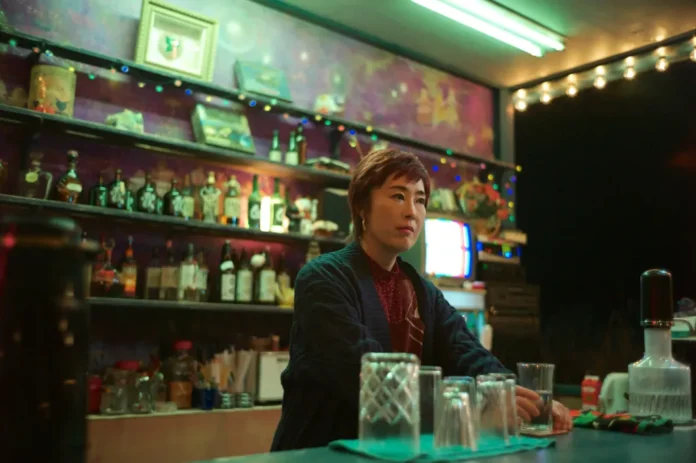
DIRECTOR Michihito Fujii’s Netflix film, The Parades, is set in the direct aftermath of the 2011 Great East Japan Earthquake, which in ‘real life’ saw 20,000 people lose their lives.
Minako (Masami Nagasawa), a TV reporter and single mother, dies in the disaster, but wakes to find herself in limbo, as she has some unfinished business to take care of before she can move onto the afterlife.
Desperate to know if her young son is still alive, she takes refuge with a group of happy-go-lucky restless spirits, all searching for loved ones they have left behind. Minako is frantic to find her son, but the other spirits including a writer (Kentaro Sakaguchi), a former yakuza (Ryusei Yokohama) and a bar hostess (Shinobu Terajima), seem almost cavalier about their unresolved business.
In fact, the other ghosts appear to be having a great time. During the day, they check in on family members, visit old haunts, and even attend their own anniversary services. Then by night, it is wining, dining, karaoke, and laughter. Moving on to the great hereafter is the last thing on any of their minds.
Once a month they join a parade with all the other dead souls, where they walk the streets searching for the loved ones they struggle to move on without. Only then, when Minako and her new friends are at peace with the obligations that remain unfulfilled and the regret they now feel, can they leave the void they find themselves in.
The Parades is a calm and untroubled mediation on life, loss, and memory. A pleasant and slow-paced film, it asks no hard questions of its audience, and for the most part, comes off like a gentle and overly sentimental affair that is all Ovaltine and slippers.
Fujii’s movie has its moments, but is too syrupy and rambling to keep your attention.
(2/5)


